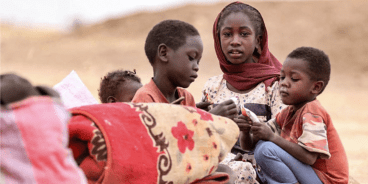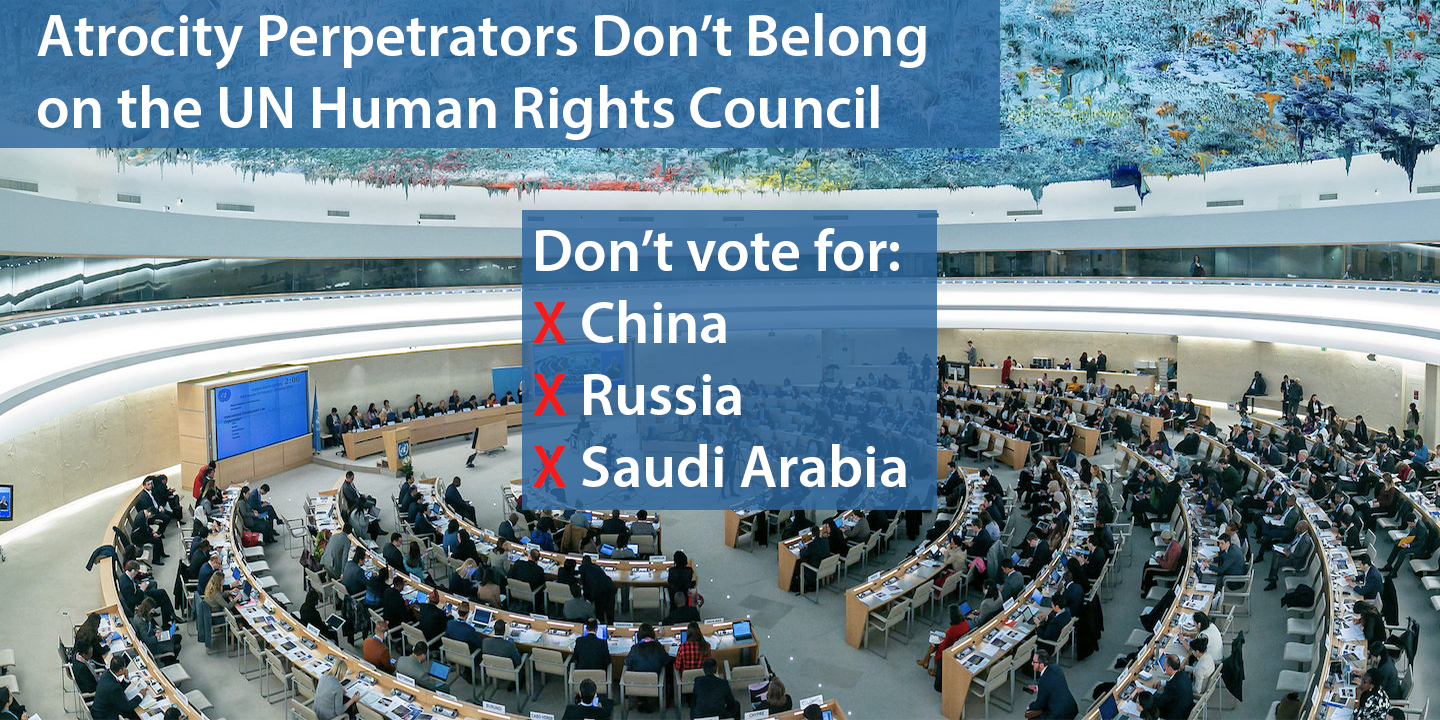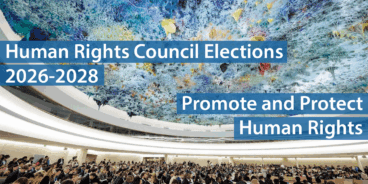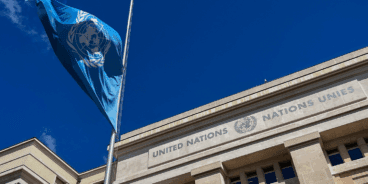

Atrocity Perpetrators Don’t Belong on the UN Human Rights Council
On 13 October the UN General Assembly will elect 15 new members to the Human Rights Council (HRC) for a three-year term commencing January 2021. Among the candidates running for election are the People’s Republic of China and the Kingdom of Saudi Arabia, who are competing against Nepal, Pakistan and Uzbekistan for the four available seats in the Asia-Pacific regional group. The Russian Federation is also running unopposed in the Eastern European group.
China, Russia and Saudi Arabia all fail to fulfill the minimum requirements for HRC candidacy. UN General Assembly Resolution 60/251 states that “members elected to the Council shall uphold the highest standards in the promotion and protection of human rights.” All three governments have severely undermined human rights and other obligations under international law, including by committing potential mass atrocity crimes. Russia’s candidacy also underlines how “clean slate” elections threaten to undermine the credibility of the HRC as they do not encourage states to demonstrate their commitment to human rights.
The Global Centre for the Responsibility to Protect is urging all UN member states to refrain from voting for China, Russia and Saudi Arabia during the October HRC election.
Under the guise of combatting religious extremism and terrorism, in recent years China has intensified its persecution of the ethnic Uighur community in the Xinjiang Uighur Autonomous Region. Approximately 1 million Uighurs and other Muslim minorities – including Kazakhs and Kyrgyz – are currently being detained in so-called “re-education” or “de-extremification” facilities. Tens of thousands of Uighurs have also been subjected to conditions that strongly suggest forced or coerced labor. Recent reports have also documented a government campaign to drastically reduce Uighur births (including through forced abortions and sterilizations), and of systematic efforts to dismantle or destroy the ancient cultural heritage of the Uighurs. These crimes are in violation of customary international law and the Convention on the Prevention and Punishment of the Crime of Genocide, of which China is a signatory.
The Kingdom of Saudi Arabia and its coalition partners have consistently violated International Humanitarian Law and International Human Rights Law in Yemen. Since 2015, the Saudi-led coalition has conducted indiscriminate airstrikes that have killed thousands of Yemeni civilians and destroyed civilian infrastructure. The Saudi-led coalition’s pattern of reckless and unlawful bombings demonstrates a blatant disregard for international law. The Group of Eminent Experts (GEE) on Yemen has reported that attacks conducted by Saudi Arabia may amount to war crimes.
China and Saudi Arabia have demonstrated an unwillingness to cooperate with the HRC and its mechanisms, including by withholding access to various Special Procedures mandate holders. Saudi Arabia has also systematically obstructed accountability efforts at the HRC for violations in Yemen, including by blocking an independent international investigation for Yemen in 2015 and consistently voting against the GEE mandate renewal since 2018.
Meanwhile, since 2015 the Russian Federation has directly supported the Syrian government in its armed conflict with opposition groups. Russia has participated in joint military operations that have involved the use of cluster munitions and other prohibited weapons. Russia has been complicit in attacks targeting civilians and civilian objects, including healthcare facilities, schools, markets and evacuation routes. The HRC-authorized Commission of Inquiry on Syria found that during the April 2019 to March 2020 offensive in northwest Syria, Syrian government and Russian forces perpetrated war crimes and that there were “reasonable grounds to believe” they intentionally terrorized civilian populations. In addition, Russia has consistently blocked international accountability efforts, including through vetoing 16 UN Security Council resolutions on the situation in Syria.
The election of China, Russia and Saudi Arabia to the HRC would undermine the Council’s credibility, effectiveness and integrity. On the other hand, a failure to get elected would send a strong message that the international community does not tolerate atrocity crimes, and that the privilege of serving on the HRC is reserved for states genuinely committed to the protection and promotion of universal human rights.
Related Content


